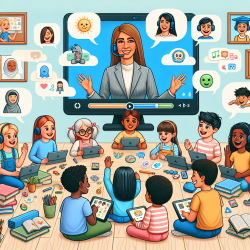Introduction
In the ever-evolving landscape of mental health care, bridging traditional and modern practices can create transformative outcomes. A recent study titled "Transformative learning in the setting of religious healers: A case study of consultative mental health workshops with religious healers, Ethiopia" explores how transformative learning theory (TLT) can foster collaboration between religious healers and biomedical practitioners. This blog delves into the study's findings and suggests ways practitioners can enhance their skills by integrating these insights.
Understanding Transformative Learning Theory
Transformative Learning Theory (TLT), developed by Jack Mezirow, involves changing existing beliefs through discourse and critical reflection. It encourages learners to adopt an open and accommodating view, moving beyond mere content transmission to ongoing reflection and meaning-making. The study in Ethiopia applied TLT to improve collaboration between psychiatrists and religious healers, highlighting the potential of TLT to bridge cultural and professional divides.
Key Findings from the Study
The study utilized TLT to design and evaluate educational interventions at Holy water sites in Addis Ababa, Ethiopia. Here are some key findings:
- Disorienting Dilemmas: Participants experienced dilemmas that challenged their traditional beliefs, prompting self-examination and critical reflection.
- Reflective Opportunities: Separate and group reflections encouraged participants to reassess attitudes and foster collaboration.
- Improved Collaboration: The workshops led to increased coordination between psychiatrists and traditional healers, enhancing mental health care delivery.
Practical Applications for Practitioners
For practitioners, this study offers valuable insights into improving mental health services through collaboration and transformative learning:
- Embrace Cultural Sensitivity: Understanding and respecting cultural contexts can enhance collaboration and service delivery.
- Foster Reflective Practices: Encourage self-examination and critical reflection among practitioners to challenge existing assumptions.
- Promote Collaborative Workshops: Organize workshops that bring together diverse practitioners to share knowledge and experiences.
Encouraging Further Research
While this study provides a framework for collaboration, further research is needed to explore the long-term impact of such initiatives. Practitioners are encouraged to engage in research that examines the integration of traditional and modern practices in various cultural contexts.
Conclusion
The study demonstrates the potential of transformative learning to bridge divides in mental health care. By embracing cultural sensitivity, fostering reflection, and promoting collaboration, practitioners can enhance mental health services and create better outcomes for communities. To read the original research paper, please follow this link: Transformative learning in the setting of religious healers: A case study of consultative mental health workshops with religious healers, Ethiopia.










